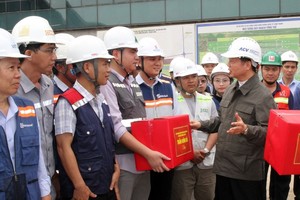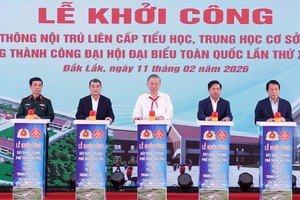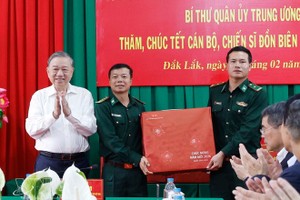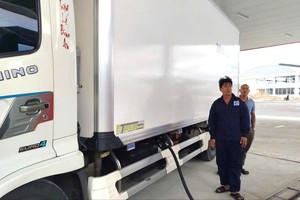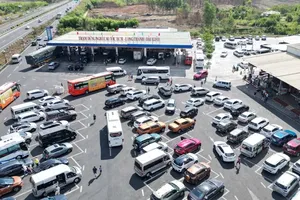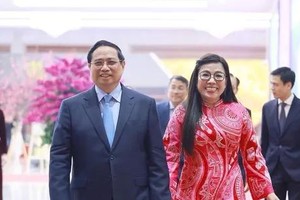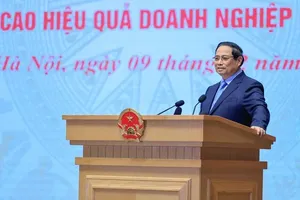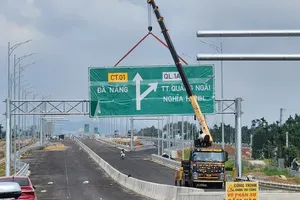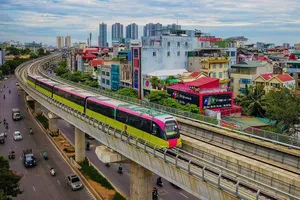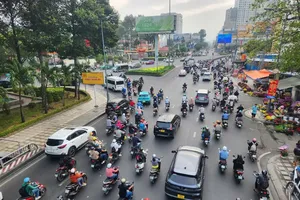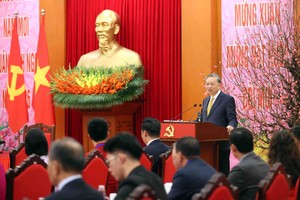At today’s P4G Summit, five ministerial-level discussions were held on pressing issues of concern to member countries. Notably, topics related to green transformation technologies and mobilizing financing for green growth garnered significant attention from the event participants.
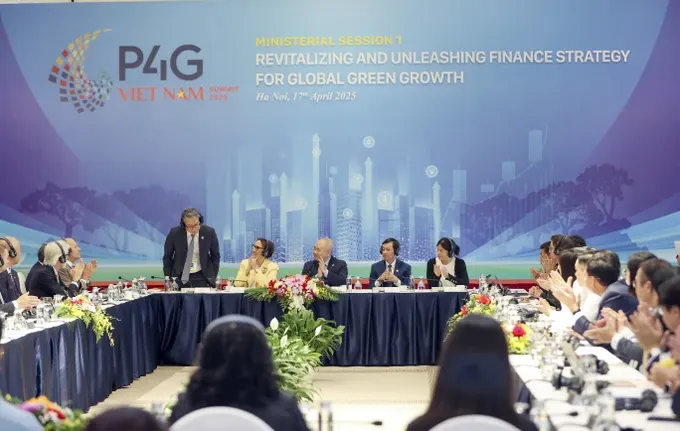
Presiding over the symposium on "Breakthrough technology for green transformation and sustainable development in the smart era", Minister of Science and Technology Nguyen Manh Hung asserted that eco-friendly and sustainable development is advancement founded on scientific innovation, technological breakthroughs, and digital transformation. Vietnam deems this an imperative strategic selection, a paramount priority.
Vietnam's proposal is to establish a website for countries and businesses to access technology and green transformation experience. P4G countries also need to establish an open innovation model to form a bridge between places in need and solution and technology providers.
At the discussion, Minister of Defense of Kenya Hon Soipan Tuya shared that to promote the role of AI in green development, countries need to invest in digital infrastructure, from high-speed Internet, accessible cloud computing to on-site data centers.
Ambassador Bader Al Matrooshi of the United Arab Emirates (UAE) emphasized the country's commitment to smart agriculture including the application of hydroponic technology and the promotion of green farming practices to combat climate change. Similarly, Japanese Deputy Minister of the Environment Katsume Yasushi highlighted Japan's use of artificial intelligence to monitor pollution, climate change, and the biodiversity crisis.
During the discussion session titled “Financial Innovation and Capital Mobilization Strategies for Global Green Growth,” delegates explored solutions for financing green projects. Many international participants underscored the critical role of public-private partnerships and the need for harmonized regional policies, with the goal of establishing a cross-border green financial corridor in Asia.
Secretary General Rebeca Grynspan of the United Nations Conference on Trade and Development (UNCTAD) said that the key role of reforming the global financial architecture is to ensure that capital reaches the right place, at the right time, especially in developing countries.
Commenting on the green finance market in Vietnam, the speakers also pointed out barriers such as lack of a clear classification system, international standards that are too high compared to market capacity, unclear legal framework for issuing green bonds.
IFC Country Director Thomas Jacobs for Vietnam, Cambodia and Laos said that Vietnam's financial needs to implement the roadmap for net zero emissions by 2040 are estimated at US$368 billion. However, the current financial system still has many limitations, such as green credit accounts for less than 5 percent of total outstanding loans, the climate bond market is not yet developed. Mr. Thomas Jacobs called for solutions such as improving regulations, strengthening banking capacity, promoting innovative financial instruments such as bonds.
Representing the local administration, Deputy Chairman of the Ho Chi Minh City People's Committee Nguyen Van Dung stated that the southern largest city has consistently been at the forefront of advancing environmental finance initiatives. Presently, the metropolis has established an ecological development strategy through 2030, executed distinctive fiscal measures in accordance with the National Assembly's Resolution 98/2023/QH15 and vigorously attracted sustainability-focused investment funds through municipal eco-friendly bonds and environmentally conscious public-private collaborations. The city has additionally proposed numerous categories of initiatives including: enhancing regulatory frameworks, expanding funding alternatives, cultivating sustainable financial instruments and bolstering global partnerships.
The discussion session proposed 4 policy priorities proposed by delegates including perfecting national and global financial institutions, promoting innovation of green financial products, promoting public-private partnerships; improving transparency and monitoring of green finance.
Discussion sessions centered on 'Catching up with the 4.0 green revolution: The journey to transform the food system for a sustainable era' 'Investing in people - Building a team for the future economy' and 'Innovative solutions in efficient and sustainable energy conversion' caught significant attention from participants.
